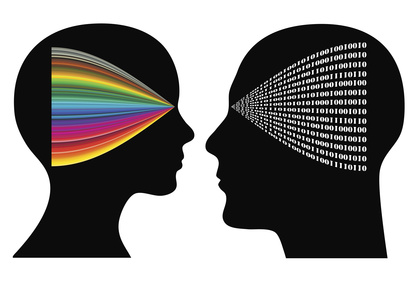 In 2010, Joe Henrich and several of his colleagues at the University of British Columbia made a fascinating discovery: people in the industrialized world are weird. That is, WEIRD: Western, Educated, Industrialized, Rich, and Democratic. Compared with the rest of the world, inhabitants of North American and European societies (including Australia and New Zealand) were much more analytical, as opposed to holistic, in their cognitive styles. This means, for example, that an American or European looking at a painting would be more likely to see a number of discrete, isolated elements: a tree here, a figure there. Meanwhile, people from other parts of the world would be more likely to see a complete whole: a landscape, within which was contained various elements. The Cognitive Style and Religious Attitudes project is an initiative by IBCSR to study the relationship between such cognitive orientations and religious belief – a relationship that may get at the heart of contemporary ideological polarization and religion-science tension.
In 2010, Joe Henrich and several of his colleagues at the University of British Columbia made a fascinating discovery: people in the industrialized world are weird. That is, WEIRD: Western, Educated, Industrialized, Rich, and Democratic. Compared with the rest of the world, inhabitants of North American and European societies (including Australia and New Zealand) were much more analytical, as opposed to holistic, in their cognitive styles. This means, for example, that an American or European looking at a painting would be more likely to see a number of discrete, isolated elements: a tree here, a figure there. Meanwhile, people from other parts of the world would be more likely to see a complete whole: a landscape, within which was contained various elements. The Cognitive Style and Religious Attitudes project is an initiative by IBCSR to study the relationship between such cognitive orientations and religious belief – a relationship that may get at the heart of contemporary ideological polarization and religion-science tension.
The difference is, in part, exemplified by the distinction between analytical and intuitive reasoning. Several studies in the past few years have demonstrated that analytical thinking – that is, thinking that overrides intuitive hunches and parses information finely in order to produce logical, but often counterintuitive, answers – is anti-correlated with religious belief. Intuitive thinkers tend to rely on gut feelings and intuitions, and also to be more religious. Analytical thinkers override hunches and intuitions, and tend to be less religious.
Generally, humans are intuitive thinkers, and analytical thinking – which is far more energy-intensive and difficult than intuitive reasoning – is reserved for relatively rare situations. But Henrich’s work shows that certain societies value and reward analytical thinking more than others. The Cognitive Style and Religious Attitudes project was started in order to explore the relationship between culture and cognitive style in a religious context. Are some religious groups more analytical, and others more intuitive? How do theologically conservative and liberal believers compare to one another within and across traditions? (One team member, Thomas Talhelm, has already found that political liberals are more analytical than political conservatives.)
It’s important to realize that analytical thinking is not necessarily superior to intuitive reasoning, although it is probably valued more highly in WEIRD cultures such as the United States (where the research team is based). In fact, intuitive cognitive capacities lie at the heart of most social interactions and everyday decision-making. Intuitive cognition can compress and condense information, so that people don’t have to make a million little decisions each time they get on a train to go downtown, for example. Much of our behavior and cognition is automized through intuitive shortcuts that save us immense amounts of time and energy. Different cultures advocate different ratios of intuitive and analytical cognitive strategies, but the fact is that we all need both to survive – regardless of which culture or religion we belong to. The Cognitive Style and Religious Attitudess project will provide valuable information about how different societies and social contexts emphasize different types of cognition and thinking styles.